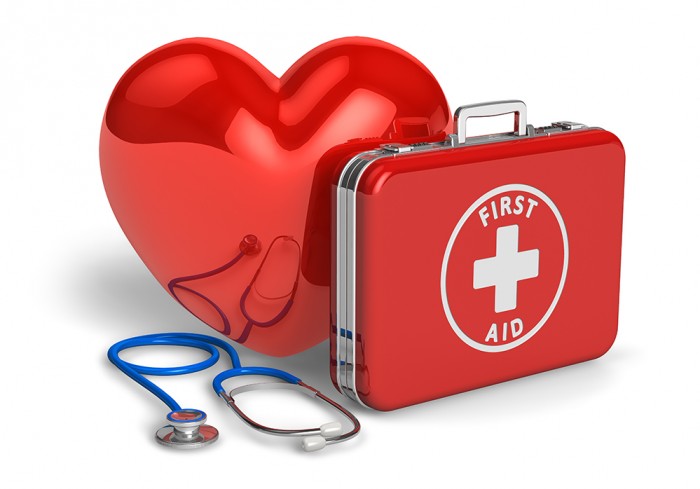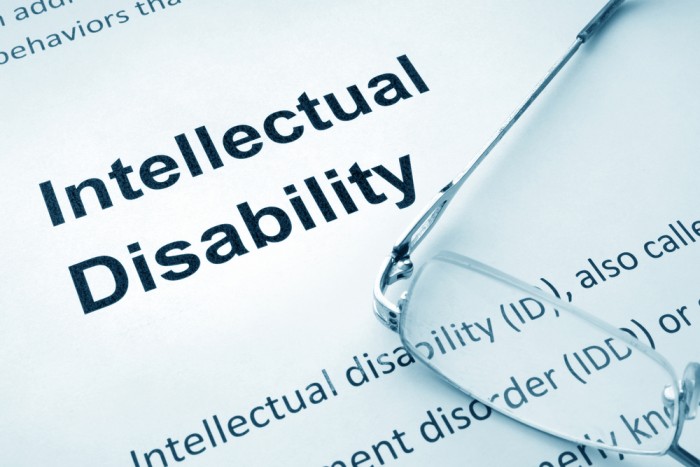Carol Ferenz
ODP Releases 2018–2019 Annual Data Report
The Office of Developmental Programs (ODP) created this statistical report detailing enrollment, self-direction services, employment, residential, targeted services management, and financial trends so that individuals, families, advocates, providers, government officials, and taxpayers can see and measure how many individuals ODP serves, what services are provided, where the individuals live, and what costs are associated with services. Facts and figures are important, but limit view of the service system. We can measure growth in the program, what types of services are prioritized, and how we are investing in services and support people.
The 2018–2019 Annual Data Report is available by using either of the following links:
The 2018–2019 Annual Data Report is a good companion to the annual report published on the performance measures developed by ODP’s Information Sharing and Advisory Committee (ISAC), entitled: Everyday Lives: Values in Action Information, Sharing and Advisory Committee (ISAC) Recommendations, Strategies, and Performance Measures. The publication is available on the MyODP Everyday Lives Publications: Reports Web Page.
ACRE Basic Certification Training for Providers of Employment Services
The Arc of Pennsylvania will host ACRE certification training sessions held in Houston, PA from April 15–17 and Reading, PA from May 18–20, 2020. These ACRE certification trainings are a combination of both in-person and online training and are for providers of Supported Employment services (this also includes providers of Career Planning services in the Adult Autism Waiver).
Please refer to the flyers for details on sessions scheduled for April 15–17 and May 18–20, 2020. Registration is required. The registration fee will be reimbursed to participants upon successful completion of the certification requirements. Attendees who successfully complete the course can be reimbursed for travel, up to $25 total.
Priority will be given to ODP and OVR-approved Supported Employment providers (including providers of Career Planning in the Adult Autism Waiver). Small Group Employment and Community Participation Support – Prevocational Services providers may register and attend as space allows.
Future dates and locations will be announced once confirmed. Please submit any questions via email.
Empowering Adults Through Supported Decision Making
Empowering Adults Through Supported Decision Making
The Role of Families, Guardians, Caregivers, and Others in Supporting Individuals Receiving HCBS
Webinar on Thursday, March 19 at 3:00 pm – 4:30 pm ET
This training is the next in a monthly webinar series hosted by ACL and the Centers for Medicare and Medicaid (CMS) and will specifically address delineating between the preferences of individuals receiving HCBS and those of families/guardians. Promising practices in building caregiver networks and coalitions across public-private partnerships will also be discussed. Webinar attendees will hear from the ABA Commission on Law and Aging discussing their report on supported-decision making for individuals across the age spectrum. The Arc will share experiences of that of a policy and advocacy organization, and a provider of services to people with disabilities when there are support-decision making considerations involved. In addition, The Center for Public Representation will focus on the HCBS settings rule in the supported-decision making context.
Registration Open for ASD Seminars: Getting Better at Behavioral Assessment & Treatment
Presented by the Office of Developmental Programs (ODP)
Regardless of our role, we should all continuously strive to get “better” at supporting someone who may have behaviors that are challenging. This training will focus on ways that, within your role, you can ensure that the behavioral support you are providing is sound and appropriate. We will be offering two sessions, held across four locations that focus on the role you play in this process.
Session 1 (9:00 am – 12:00 pm) is for any professional (and their supervisors) who is trained to implement behavioral plans and who works directly with individuals. This session will present an introduction to the essential components of effective behavioral assessment and treatment.
Session 2 (1:00 pm – 4:30 pm) is for any Behavioral Specialist who completes behavioral assessments, develops behavioral plans, and trains others. This session will discuss ways to conduct better assessments and develop better behavioral support plans while acknowledging barriers and pitfalls to these processes.
DATES & LOCATIONS
- Northeast – April 9: East Stroudsburg University
- Southeast – April 15: Montgomery County Community College
- Central – April 21: Capital Area Intermediate Unit
- West – May 5: Ramada by Wyndham Greensburg Hotel & Conference Center
There is no cost to attend the training, but pre-registration is required.
TO REGISTER, use this link and follow the instructions. For questions about this announcement, please submit via email.
Health Alert Regarding Coronavirus (COVID-19)
The Department of Human Services (DHS) is working closely with the Pennsylvania Department of Health (DOH) to ensure preparations for a response to a possible Coronavirus (COVID-19) outbreak in the state and as a result, has issued a Health Alert with pertinent information. DOH is the lead agency for the Commonwealth’s response to COVID-19. At the time of this dissemination, Pennsylvania has zero confirmed cases of COVID-19.
- Strategies to Prevent the Spread of COVID-19 in Long-Term Care Facilities (LTCF) (Source: CDC)
- If you have questions specifically regarding COVID-19 in relation to health care settings, DOH has provided resources here.
- Interim Guidance for Businesses and Employers to Plan and Respond to Coronavirus Disease 2019 (COVID-19) (Source: CDC).
- Information on what to do if you are sick.
- For questions about ODP regulatory compliance related to COVID-19, providers can submit inquiries to the licensing resource account. Otherwise, please visit the DOH site, which has several downloadable documents that can be used for information dissemination, or call 877-PA-HEALTH.
- The Deaf-Hearing Communication Centre of the Philadelphia region released an update on the COVID-19 for individuals with deaf and hard of hearing needs.
Again, DHS is supporting DOH in the disseminating of information related to COVID-19 and all guidance is provided by, and should be sought through, DOH.
All providers are encouraged to:
- Review internal infection control protocols and emergency backup plans for events in which a provider does not have adequate staffing to meet individuals’ health and safety needs.
- Evaluate staff adherence to provider infection control protocols.
- Evaluate capacity to implement emergency backup plans in the event staffing is impacted by the COVID-19 virus.
While COVID-19 is raising international concern, it presents an opportunity to evaluate preventative infection control measures. Medically fragile individuals, those in congregate settings, and the staff that support/interact with them are all at increased risk for infections of all kinds, not just COVID-19. As always, the best response is prevention and the best prevention is good infection control.
March is IDD Awareness Month
Governor Tom Wolf has signed a proclamation highlighting Pennsylvania’s accomplishments towards the goal of full inclusion for individuals with developmental disabilities.
Additionally, each March, the National Association of Councils on Developmental Disabilities (NACDD) partners with the Association for University Centers on Disabilities (AUCD) and the National Disabilities Rights Network (NDRN), to create a social media campaign that highlights the many ways in which people with and without disabilities come together to form strong, diverse communities.
The campaign seeks to raise awareness about the inclusion of people with developmental disabilities in all areas of community life, as well as awareness of the barriers that people with disabilities still sometimes face in connecting to the communities in which they live.
Developmental Disabilities Awareness Month (DDAM) 2020 Images and Artwork:
If you have resources that you would like to submit or would like your artwork to be featured, please send them to Bob McWilliams.
Spokesperson for “We Can Work” Campaign Sought
The “We Can Work” campaign is intended to raise awareness that people with disabilities can work without worrying about losing their benefits. The campaign will provide education and outreach not only to those seeking employment, but to family members, advocates, and employers as well. The campaign, in its first phase, will consist of commercials featuring people who are already working, or employers who are already hiring people with disabilities, and highlighting their success in integrated employment.
We are looking for someone from anywhere in Pennsylvania who would be a good spokesperson for this and who would be willing to share their employment experiences in this ad.
The intention is to begin filming in April, and the filming will be arranged around any potential individual’s schedule. The filming day would entail Commonwealth Media Services spending the day with the person and/or their employer, interviewing them, and accompanying the person around to get footage of them throughout their work day.
Interested individuals should contact:
Edward M. Butler, Employment Specialist
Bureau of Policy, Development and Communications Management
717-214-3718
ABLE Accounts Compared to Special Needs Trusts
ODP Presents 2020 ASD Seminars
“Getting Better at Behavioral Assessment and Treatment”
Presented by the Office of Developmental Programs (ODP)
Regardless of our role, we should all continuously strive to get “better” at supporting someone who may have behaviors that are challenging. This training will focus on ways that you can ensure, in your role, that the behavioral support you are providing is sound and appropriate. We will be offering two sessions across four locations that focus on the role you play in this process.
Session 1 (9 am – 12 pm) is for any professional (and their supervisors) who is trained to implement behavioral plans and that work directly with individuals. This session will present an introduction to the essential components of effective behavioral assessment and treatment.
Session 2 (1 pm – 4:30 pm) is for any Behavioral Specialist who completes behavioral assessments, develops behavioral plans, and trains others. This session will discuss ways to conduct better assessments and develop better behavioral support plans while acknowledging barriers and pitfalls to these processes.
DATES & LOCATIONS
April 9: East Stroudsburg University
April 15: Montgomery County Community College
April 21: Capital Area Intermediate Unit
May 5: Ramada by Wyndham Greensburg Hotel & Conference Center
Registration details coming soon!!

















